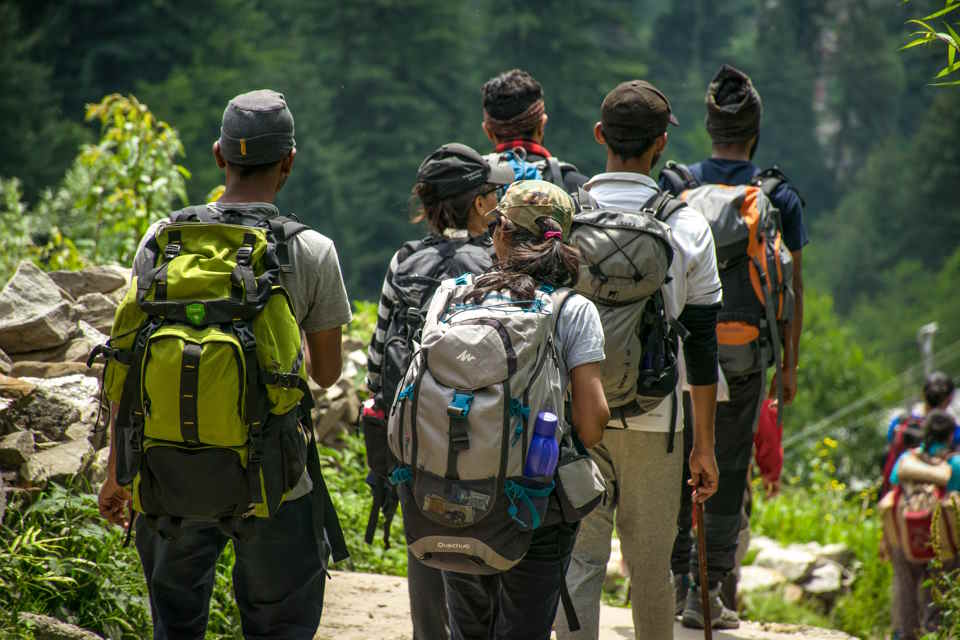As outdoor enthusiasts, the thrill of embarking on a trekking tour in a breathtaking location can be exhilarating. However, it’s essential to recognize the impact that our adventures can have on the environment and local communities. Choosing a responsible trekking tour operator is crucial in ensuring that our expeditions are sustainable and ethical. In this blog post, we will delve into the significance of responsible trekking tours and provide guidance on how to select a tour operator that is committed to ethical and sustainable practices. From researching the reputation of tour operators to ensuring the ethical treatment of guides and porters, we will explore the key considerations that should be taken into account when choosing a trekking tour company. By making informed choices, we can all play a part in promoting responsible and sustainable tourism.Discover the significance of ethical trekking tours. Learn how to evaluate operators and ensure sustainable and ethical practices. Prioritize responsible travel.
Understanding The Importance Of Responsible Trekking Tours

Responsible trekking tours are crucial for preserving the natural beauty and cultural integrity of the destinations we visit. As travelers, it’s important to recognize the impact we have on the environment and local communities, and to choose tour operators who prioritize sustainability and ethical practices.
By participating in responsible trekking tours, we can support local economies, mitigate our environmental footprint, and contribute to the preservation of natural resources. It’s about more than just the experience of the trek itself; it’s about understanding the bigger picture and our role in ensuring the long-term well-being of the places we visit.
Choosing responsible trekking tours also allows us to engage with local cultures in a respectful and meaningful way. We have the opportunity to learn from and connect with communities, while also helping to ensure that our presence has a positive impact rather than a detrimental one.
Ultimately, when we prioritize responsible trekking tours, we are making a commitment to being mindful and responsible travelers. We are taking steps to become more conscious of the impact of our actions, and to make a positive difference in the places we explore.
Researching And Evaluating The Trekking Tour Operator’s Reputation

When planning for a trekking adventure, it is crucial to carefully research and evaluate the reputation of the tour operator you are considering. The reputation of a tour operator can greatly impact the quality of your experience and the impact of your trek on the environment and local communities. Therefore, it is important to take the time to thoroughly research and evaluate the tour operator’s reputation before making a decision.
One of the first steps in researching a trekking tour operator’s reputation is to look for reviews and testimonials from previous clients. These can provide valuable insight into the experiences of others who have used the tour operator’s services. Look for reviews on independent websites and forums to get a well-rounded understanding of the operator’s reputation.
Another important aspect to consider when evaluating a tour operator’s reputation is their commitment to sustainable and responsible trekking practices. A reputable operator should have a clear and transparent commitment to minimizing their environmental impact, supporting local communities, and providing ethical treatment of their guides and porters. Look for information about their environmental policies, community engagement, and ethical treatment of staff on their website, and don’t be afraid to ask the operator directly about these issues.
Lastly, it is also worth considering the tour operator’s accreditation and certifications. Look for operators who are members of relevant industry associations and have certifications related to sustainable tourism and responsible trekking practices. This can provide an added level of confidence in the reputation and commitment of the tour operator.
Assessing The Operator’s Commitment To Sustainable Practices

As responsible travelers, it is crucial to ensure that the trekking tour operator we choose is committed to sustainable practices. One way to assess this commitment is by looking at the operator’s policies and initiatives regarding environmental conservation. Do they have clear guidelines in place to minimize their impact on the natural surroundings? Are they actively involved in local conservation efforts? These are important questions to consider when evaluating the sustainability practices of a trekking tour operator.
Another important aspect to consider is the operator’s approach to waste management. Responsible trekking operators should have policies in place for waste disposal and recycling. It is essential to choose a tour operator who prioritizes minimizing waste and adheres to responsible waste management practices. This shows their dedication to sustainable and eco-friendly trekking tours.
Furthermore, assessing the use of resources by the operator is essential in determining their sustainability practices. For instance, do they use renewable energy sources in their accommodations and offices? Are they mindful of their water consumption and take measures to conserve it? Operators that prioritize sustainable resource management demonstrate a genuine commitment to reducing their environmental impact.
Lastly, the commitment to sustainable practices can be seen through the operator’s support for the local community and economy. Do they engage in responsible tourism practices that benefit the local residents and businesses? A trekking tour operator that is committed to sustainability will seek to minimize any negative social and economic impacts on the local communities they operate in.
Ensuring Ethical Treatment Of Guides And Porters

When embarking on a trekking tour, it’s important to ensure that the guides and porters involved in the journey are treated ethically and fairly. Trekkers have a responsibility to uphold ethical standards and ensure that the individuals who support their trekking experience are treated with respect and dignity.
One way to ensure ethical treatment of guides and porters is to choose a trekking tour operator who prioritizes the well-being of their staff. Researching and evaluating the reputation of the tour operator can provide valuable insight into their treatment of guides and porters. Look for operators who are committed to fair wages, proper equipment, and safe working conditions for their employees.
Another important consideration is to assess the operator’s commitment to sustainable practices. Ethical treatment of guides and porters extends beyond fair wages and proper equipment. It also involves minimizing environmental impact and promoting responsible tourism. By choosing an operator who prioritizes sustainability, trekkers can contribute to the ethical treatment of guides and porters.
Ultimately, ensuring ethical treatment of guides and porters is a crucial aspect of responsible trekking. Trekkers have the power to make a positive impact by choosing operators who uphold ethical standards and prioritize the well-being of their staff.




